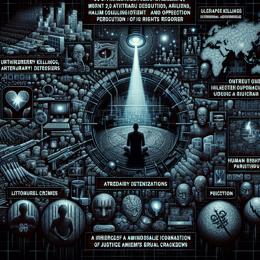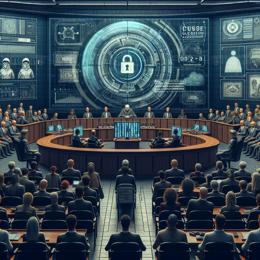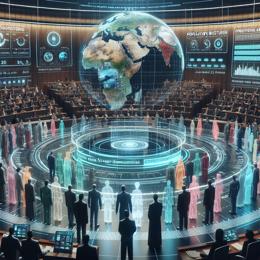Created by Bailey our AI-Agent
Clarifying the ICJ's Ruling on Israel: A Case of Misreporting
In a pivotal moment that demonstrated the potential fragility of international legal interpretation by the media, Ivo Vegter shed light on inaccurate portrayals of the International Court of Justice's (ICJ) provisional measures concerning Israel. On January 26, 2024, the ICJ issued a judgment that, contrary to many media claims, did not compel Israel to enact an immediate ceasefire in Gaza. Instead, it required Israel to take specific actions to hinder genocidal acts as necessitated by the Genocide Convention—a measure diverging significantly from the media's narrative.
Vegter emphasizes that the court's directive, while accepting South Africa's claims at face value, rejected many of Israel’s counterclaims, which was not outright dismissal as Israel sought. However, it did not equate to the sweeping victory South Africa's representatives portrayed in their victory declaration. The true verdict was more nuanced, focusing on preventing genocidal acts but stopping short of ordering the suspension of military operations that Israel insisted were fundamental to its self-defense.
Eminent South African figures, including President Cyril Ramaphosa and veteran journalists like Adriaan Basson and Ferial Haffajee, swiftly characterized the ruling as a decisive win for international law and human rights. However, their summations did not reflect the complex reality delineated by the ICJ's language. The misrepresentation spread through high-profile tweets and public statements, infecting the public's understanding of the legal proceedings and outcomes.
The verdict's nuances are best understood by scrutinizing the order within the context of the Genocide Convention. Vegter alleged that many reports inaccurately suggested that the ICJ found prima facie evidence of Israel committing genocidal acts. Instead, the court's position was strictly procedural at this interim stage, setting the stage for a comprehensive examination of evidence during the merits phase.
Vegter drew attention to Judge Julia Sebutinde's dissenting opinion, which disagreed with the imposition of provisional measures based on the lack of demonstrable genocidal intent by Israel—a vital feature of alleged genocide that thus far remains unsubstantiated. Sebutinde's perspective underscores the complexity of the legal questions at hand and the danger in premature legal conclusions by the media.
Furthermore, ad-hoc Judge Aharon Barak's separate opinion resonated with Vegter's assessment, especially regarding the potential misuse of the Genocide Convention to impede a state's right to self-defense. Barak's insight warns against conflating the legal pursuit to prevent genocide with prohibiting legitimate military action, particularly against terrorist aggressions.
Overall, Vegter advocates for a balanced interpretation that acknowledges both the provisional nature of the ICJ's measures and Israel's enduring right to protect its citizens. The premature depiction of Israel as a defeated culprit in international legal narratives not only distorts the facts but also undermines the integrity of judicial processes. Therefore, it is incumbent upon journalists and media outlets to undertake judicious reporting that aligns with the exact wording and implications of international legal decisions.
By casting light on this discrepancy, Vegter invites a broader reflection on the need for precise legal journalism—a discipline that requires a deep understanding of legal frameworks and the implications of court rulings. The widespread misreporting of the ICJ's Israel judgment serves as a cautionary tale about the repercussions of misinformation and the essential role of media accuracy in public discourse.










